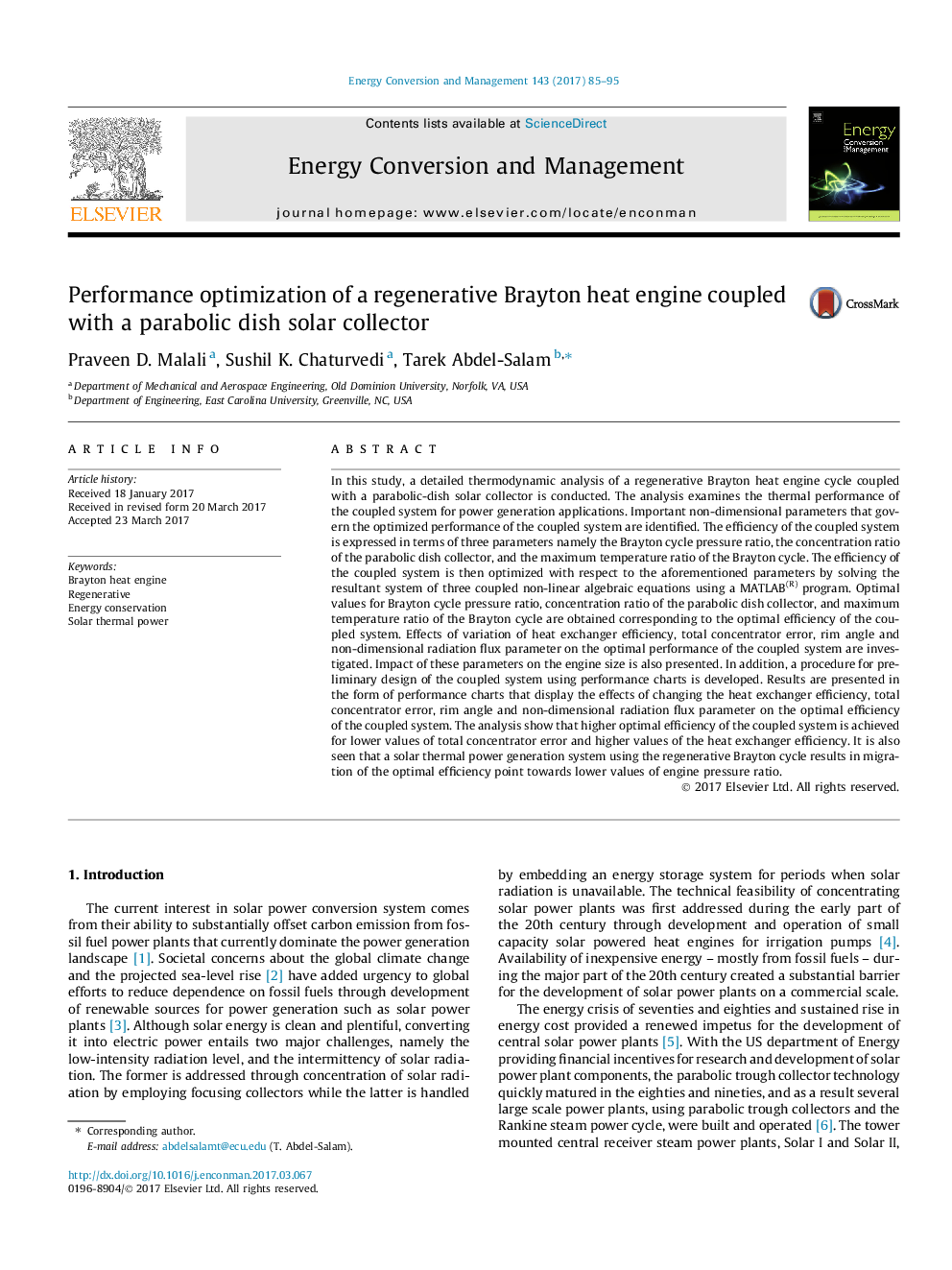| Article ID | Journal | Published Year | Pages | File Type |
|---|---|---|---|---|
| 5012759 | Energy Conversion and Management | 2017 | 11 Pages |
Abstract
In this study, a detailed thermodynamic analysis of a regenerative Brayton heat engine cycle coupled with a parabolic-dish solar collector is conducted. The analysis examines the thermal performance of the coupled system for power generation applications. Important non-dimensional parameters that govern the optimized performance of the coupled system are identified. The efficiency of the coupled system is expressed in terms of three parameters namely the Brayton cycle pressure ratio, the concentration ratio of the parabolic dish collector, and the maximum temperature ratio of the Brayton cycle. The efficiency of the coupled system is then optimized with respect to the aforementioned parameters by solving the resultant system of three coupled non-linear algebraic equations using a MATLAB(R) program. Optimal values for Brayton cycle pressure ratio, concentration ratio of the parabolic dish collector, and maximum temperature ratio of the Brayton cycle are obtained corresponding to the optimal efficiency of the coupled system. Effects of variation of heat exchanger efficiency, total concentrator error, rim angle and non-dimensional radiation flux parameter on the optimal performance of the coupled system are investigated. Impact of these parameters on the engine size is also presented. In addition, a procedure for preliminary design of the coupled system using performance charts is developed. Results are presented in the form of performance charts that display the effects of changing the heat exchanger efficiency, total concentrator error, rim angle and non-dimensional radiation flux parameter on the optimal efficiency of the coupled system. The analysis show that higher optimal efficiency of the coupled system is achieved for lower values of total concentrator error and higher values of the heat exchanger efficiency. It is also seen that a solar thermal power generation system using the regenerative Brayton cycle results in migration of the optimal efficiency point towards lower values of engine pressure ratio.
Related Topics
Physical Sciences and Engineering
Energy
Energy (General)
Authors
Praveen D. Malali, Sushil K. Chaturvedi, Tarek Abdel-Salam,
